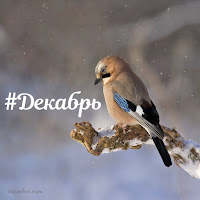14 января_группа5_урок5_домашнее задание
В понедельник мы не встречаемся: национальный праздник День Мартина Лютера Кинга.
Вот ваше задание на вторник 18 января:
- ex. 131b p.103 (write down questions; send for corrections)
- record and send to me your reading of ex. 136b p.109 U.S. public transportation
- ex. 69 p. 85
- ex. 72 p. 86-87
- review vocabulary for the article on p. 25 about the Exhibit
https://www.cram.com/flashcards/jan14-p25-exhibit-12553955
- preview vocabulary for the article about New Year Celebration Traditions p. 28
[vocab for story on p. 27 about traditions of celebrating New Year is on p. 28; look at the first word 'вводить/ввести традицию' - to introduce a tradition …, then go to the body of the article and scan it for this word; once found - highlight/underline/put an asterisk* next to it. Repeat with the rest of the words. Remember: we are not reading the stories, we are just searching for the words from the vocabulary list on p.28]
Cultural Awareness
большевики
The Bolsheviks (from большинство - 'majority') were a radical, far-left, and revolutionary Marxist faction founded by Vladimir Lenin that in 1903 split with the Mensheviks (меньшинство - 'minority') from the Marxist Russian Social Democratic Labor Party (RSDLP), a revolutionary socialist political party formed in 1898.
After forming their own party in 1912, the Bolsheviks took power during the October Revolution in the Russian Republic in November 1917, overthrowing the Provisional Government of Alexander Kerensky, and became the only ruling party in the subsequent Soviet Russia and later the Soviet Union. They considered themselves the leaders of the revolutionary proletariat of Russia. Their beliefs and practices were often referred to as Bolshevism.
Спасская башня Кремля
бой курантов - bell chimes“Ирония судьбы, или c легким паром!”
The Irony of Fate, or Enjoy Your Bath! ( literally: The Irony of Fate, or With A Light Steam!) is a 1976 Soviet romantic comedy television film directed by Eldar Ryazanov. Filmed in 1975 at the Mosfilm Studios, The Irony of Fate doubles as a screwball comedy and a love story tinged with sadness. It was one of the most successful Soviet television productions and remains a highly popular New Year's Eve classic in Russia and the post-Soviet states, with millions tuning in to re-watch it every New Year's Eve.
Here is a link to the first part of this movie
салат “Оливье”
This is a traditional salad dish in Russian cuisine, which is also popular in other post-Soviet countries and around the world. In different modern recipes, it is usually made with diced boiled potatoes, carrots, brined dill pickles (or cucumber), green peas, eggs, onions, diced boiled chicken or bologna sausage (sometimes ham or hot dogs), and tart apples, with salt, pepper, and mustard added to enhance flavor, dressed with mayonnaise.
In many countries, the dish is commonly referred to as Russian salad. A variation called Stolichny salad (Russian: салат "Столичный", "capital city salad") exists, and is also popular in the Russian cuisine.
In Russia and other post-Soviet states, as well as in Russophone communities worldwide, the salad has become one of the main dishes on zakuski ( hors d'oeuvres) tables served during New Year's Eve celebrations.
салат “Сельдь под шубой”
Dressed herring, colloquially known as herring under a fur coat, is a layered salad prepared with diced pickled herring covered with layers of grated boiled eggs, vegetables (potatoes, carrots, beetroots), chopped onions, and mayonnaise. Some variations of this dish include a layer of fresh grated apple while some do not.
A final layer of grated boiled beetroot covered with mayonnaise is what gives the salad its characteristic rich purple color. Dressed herring salad is often decorated with grated boiled eggs (whites, yolks, or both).
Dressed herring salad is popular in Russia, Ukraine, Belarus and other countries of the former USSR including Lithuania and Latvia. It is especially popular for holidays, and is commonly served as zakuski (hors d'oeuvres) at New Year and Christmas celebrations in Belarus, Russia and Kazakhstan.








Comments
Post a Comment